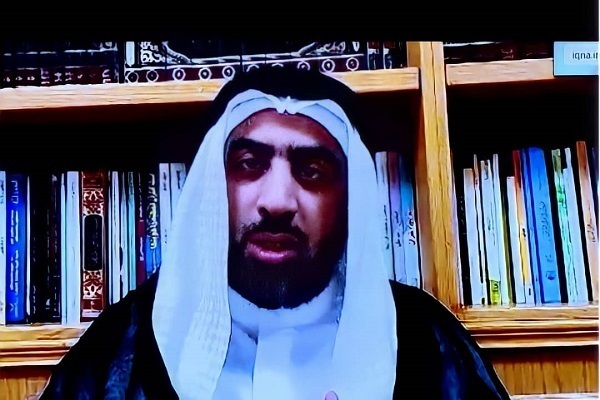Economic Boycott Would Make India Regret Insulting Islam, Kuwaiti Scholar Says

Abdullah Ahmed Safar Ibil told IQNA in an interview that countries need economic growth, which is very important to governments.
Unless India ends discriminating against Muslims and allowing desecration of Islamic sanctities, Muslim countries should impose sanctions on New Delhi, he said.
Excerpts from the interview with the Kuwaiti scholar are as follows:
Q: What is behind the insulting remarks about the Holy Prophet by the ruling party in India?
A: Islam has always faced onslaughts aimed at undermining and disparaging its symbols. Those who desecrate Islamic sanctities in India or some Western countries seek to degrade the religion whose ideas have spread in a great scope and has good ties with other faiths. If we follow news sources, we will realize that in recent years, Islam has seen the greatest growth (among other religions). This is a religion for all places and all times but those who despise Islam do not want to see its growth and thus resort to desecration of its sanctities.
(As for what is happening against Muslims in India), harassment of Muslims, especially Muslim girls who have been barred from entering some universities for wearing Hijab, is deplorable.

Differences should be respected, just as Muslims, in accordance with the teachings of the Holy Quran and the Sunnah of the Holy Prophet (PBUH), treat followers of other faiths well.
Q: How should Muslim react to desecration of the Holy Prophet (PBUH)?
A: We have seen many videos of how Indian police brutally attack Muslim protesters, which is a sign of oppression of Muslim in the country. In order to confront this, we should take economic moves.
Many times such acts of desecration are aimed at seeing how Muslims react. If there is a strong reaction, they won’t get bolder (to do more desecrations).
Q: The insulting remarks by Indian officials drew widespread anger in Muslim nations and some of them summoned India’s envoys. Are these reactions effective?
A: As for the recent insulting remarks in India, there were reactions by Islamic and Arab countries, with Kuwait, Qatar, Afghanistan, Malaysia, Iran, Libya and Pakistan, among others, summoning the Indian ambassadors. These measures forced New Delhi to retreat from some of the remarks.
Actually, Muslim countries have important ties with India and some 15 percent of India’s trade is with the Persian Gulf countries. There are also around ten million Indian nationals working in the Persian Gulf littoral states. If Muslim and Arab countries take a strong stance, it would make India reconsider its behavior.
The New Delhi government and members of the ruling Bharatiya Janata Party (BJP) talk about respecting the rights of minorities and maintaining tolerance, but we are seeing Hindus’ systemic oppression of Muslims and their extremist actions against Muslim with the support of India’s police forces.

Q: India is known as a country with ethnic and religious pluralism and Muslims have a long history in this country. Why have there been cases of oppression and injustice against Muslims in India?
A: Some of these have roots in prejudices and racism. Of course what we are seeing in India regarding discriminations against Muslims has been there for a long time.
Islam has played a very positive role in development of India and the Indian nation, but when non-Muslims became the rulers in that country, we have witnessed extremism and injustice against Muslims.
Q: We have seen what happened to (Rohingya) Muslims in Myanmar. What do you think Muslim and Arab countries and institutions can do to prevent such atrocities against Muslims?
A: The economic issue is an important one because all governments seek to develop their economies so that their nations can live in peace and welfare.
When a country oppresses Muslims, like what happened in Myanmar, that country should be boycotted so that it is forced to change its behavior. Economic boycott can be among the most powerful tools to make countries stop their oppression of defenseless Muslims.



